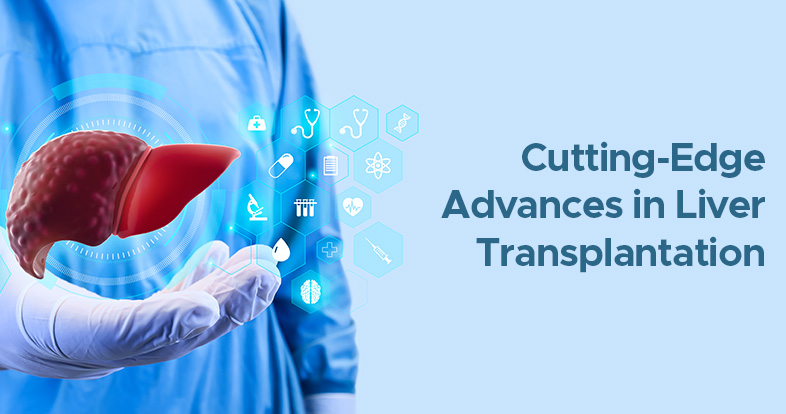
Liver transplantation has transformed from being a last-resort procedure into one of the most refined and successful surgical interventions in modern medicine. With groundbreaking innovations in surgical techniques, post-operative care, and donor-recipient matching, advances in liver transplantation are saving more lives than ever before. The procedure today is not only safer but also more effective, ensuring improved survival rates and quality of life for patients.
If you want to understand the cutting-edge advances in transplantation, this blog will walk you through the latest innovations, challenges, solutions, and costs associated with liver transplants in India. Let’s dive into the progress shaping the future of this life-saving surgery.
Every year, thousands of patients face end-stage liver disease, liver cancer, or irreversible liver damage. Traditional transplants posed challenges with organ rejection, donor shortages, and high surgical risks. The recent advances address these concerns with:
These innovations highlight why staying updated about advances in liver transplantation is crucial for patients, families, and healthcare providers.
Modern liver transplantation has benefited from remarkable innovations. Below are some of the most impactful ones shaping the future of the field.
Living donor transplants have become a game-changer in overcoming organ shortages. Surgeons now perform partial liver transplants where the donor’s liver regenerates naturally within weeks.
The introduction of robotic-assisted technology has elevated precision in surgical methods.
This revolutionary technique preserves donor livers outside the body.
Earlier, organ rejection posed a huge hurdle. With targeted immunosuppressive drugs:
Surgeons can now use 3D-printed liver models to practice complex surgeries.
AI-driven tools assist doctors in predicting outcomes.
While still in research, regenerative therapies are highly promising.
Despite advancements certain challenges in liver transplantation are still there, which includes:
Addressing these issues requires continued investment in research, public awareness, and global collaboration.
One of the most common questions patients ask is about affordability. The liver transplant price in India is significantly lower compared to Western countries, making India a leading destination for medical tourism.
On average:
While costs are substantial, they are often one-third or one-fourth of global rates, without compromising quality. Choosing the best liver transplant hospital in India ensures patients receive advanced treatment at competitive costs.
Selecting the right team is as important as the surgery itself. When looking for the best liver transplant surgeon in the world, patients often consider:
In India, renowned surgeons like Dr. Vivek Vij has contributed significantly to advancing techniques and achieving outstanding patient outcomes.
The field of liver transplantation is undergoing a revolutionary transformation, with advances in technology, surgical methods, and patient care reshaping outcomes. From robotic surgery to AI-driven solutions and bioengineering possibilities, these innovations are making transplants safer and more accessible worldwide.
For patients considering this surgery, understanding the cost of liver transplant surgery in India and choosing the best liver transplant hospital in India can make all the difference. With experts like Dr. Vivek Vij at the forefront of innovation, patients today have access to some of the most advanced care and life-saving solutions available globally.
Schedule your appointment with our liver transplant expert now.
Q1. What is the success rate of liver transplantation today?
Ans. With modern advances in liver transplantation, success rates have improved significantly, reaching 85–90% in many leading hospitals.
Q2. How long does it take to recover after a liver transplant?
Ans. Most patients spend 2–3 weeks in the hospital and may take 3–6 months to fully recover, depending on individual health conditions.
Q3. Can a living donor safely donate a part of their liver?
Ans. Yes, in Living Donor Liver Transplant (LDLT), the donor’s liver naturally regenerates within weeks, making it a safe and effective option.
Q4. What is the average liver transplant price in India?
Ans. The average cost of liver transplant surgery in India ranges between ₹12,00,000 – ₹21,00,000, depending on hospital and case complexity.
Q5. How are robotic surgeries changing liver transplants?
Ans. Robotic and minimally invasive techniques improve precision, reduce scarring, and ensure faster recovery times for both donors and recipients.
Q6. What are future possibilities in liver transplantation?
Ans. Emerging therapies like stem cell regeneration, bio-artificial livers, and AI-driven solutions are expected to make transplants more effective and accessible in the coming years.


